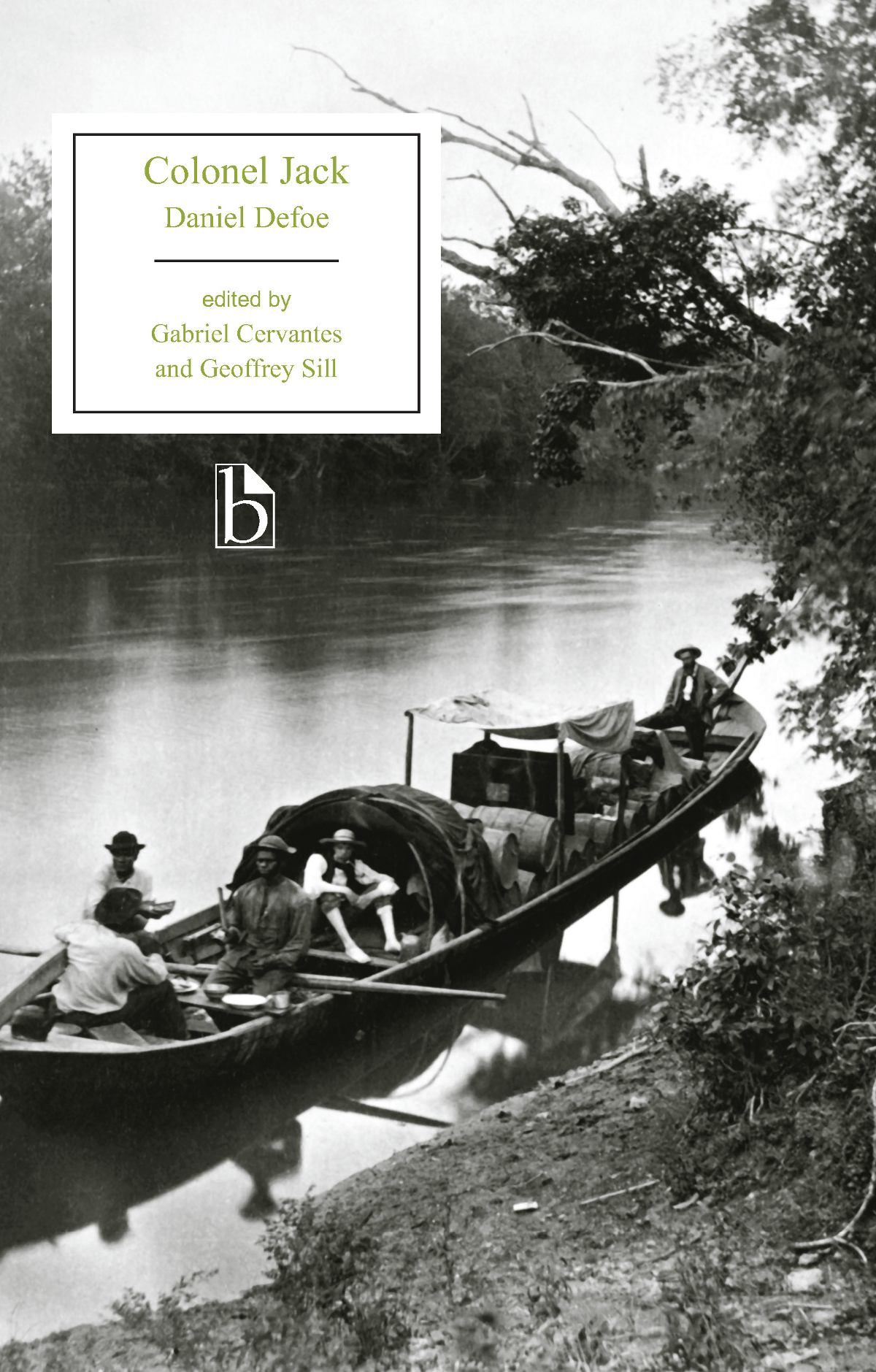Long dismissed by critics as a novel of merely historical interest, Colonel Jack is one of Daniel Defoe’s most entertaining, revealing, and complex works. It is the supposed autobiography of an English gentleman who begins life as a child of the London streets. He and his brothers are brought up as pickpockets and highwaymen, but Jack seeks to improve himself. Kidnapped and taken to America, he becomes first a slave, then an overseer on plantations in Maryland. Jack’s story is one of dramatic turns of fortune that ultimately lead to a life of law-abiding prosperity as a plantation owner.
Historical appendices relate to eighteenth-century Virginia and Maryland and to contemporary crime, punishment, and imprisonment.
Comments
“It is a pleasure to have an edition of Defoe’s Colonel Jack available for use in the classroom. As the editors, Gabriel Cervantes and Geoffrey Sill, remark, there has been no edition of this novel available for decades. The introduction is a remarkable piece of original scholarship and criticism. The discussion of Jack’s shifting concept of identity suggests Defoe’s original approach to this subject; the comparison between Jack and the later slave, Frederick Douglas frames a rich discussion about the nature of servitude at the time; and the interesting reading of the illustrations later appended to Defoe’s narrative as a way into discussing Jack’s criminal boyhood and later repentance & all provide suggestive openings into Defoe’s work both for university students who may encounter it in a class and for the general reader. Professors Cervantes and Sill also provide an appendix with fascinating documents throwing light on the nature of transporting criminals to the North American colonies and critical assessments of Colonel Jack. They rightfully lament the neglect of this work and contribute to what will surely be a revival of critical interest in one of Defoe’s best fictional narratives.” — Maximillian E. Novak, UCLA
“Jack cuts a wider swath across the social and political geography of his times than any of Defoe’s other protagonists. Abandoned at birth, he rises from homeless London street urchin to wealthy Virginia planter. Along the way, by a ‘long series of Changes and Turns,’ he is among other things a sneak thief and robber; kidnapped into slavery; the overseer and then master of slaves; a captive, variously, of the French and the Spanish; a parvenu returned to Europe intent on fashioning himself into a gentleman; an officer in the French army and then in the service of the Pretender; a fugitive who has not once but twice taken up arms against the English crown; a merchant engaged in illicit trade with Latin America; and five times the husband of four women in England, Italy, France, and Virginia, all of whom betray him. Of labile and elusive identity, he can pass for a Frenchman among his countrymen and a Spaniard among Spaniards. This scrupulous and meticulous edition provides, with its immensely useful annotation, rich and valuable historical context for an often undervalued novel.” — Lincoln Faller, University of Michigan
“Colonel Jack, the poor stepchild among the books of Defoe’s major period of fiction writing, has finally gotten the modern edition it deserves. Freshly edited and splendidly introduced by Gabriel Cervantes and Geoffrey Sill, this edition has just the right mix of contemporary writings on trade, criminality, Jacobitism, and marriage to enable modern readers to recover the rich transatlantic world that Defoe inscribes. I cannot wait to bring this edition into the classroom.” — John O’Brien, University of Virginia













